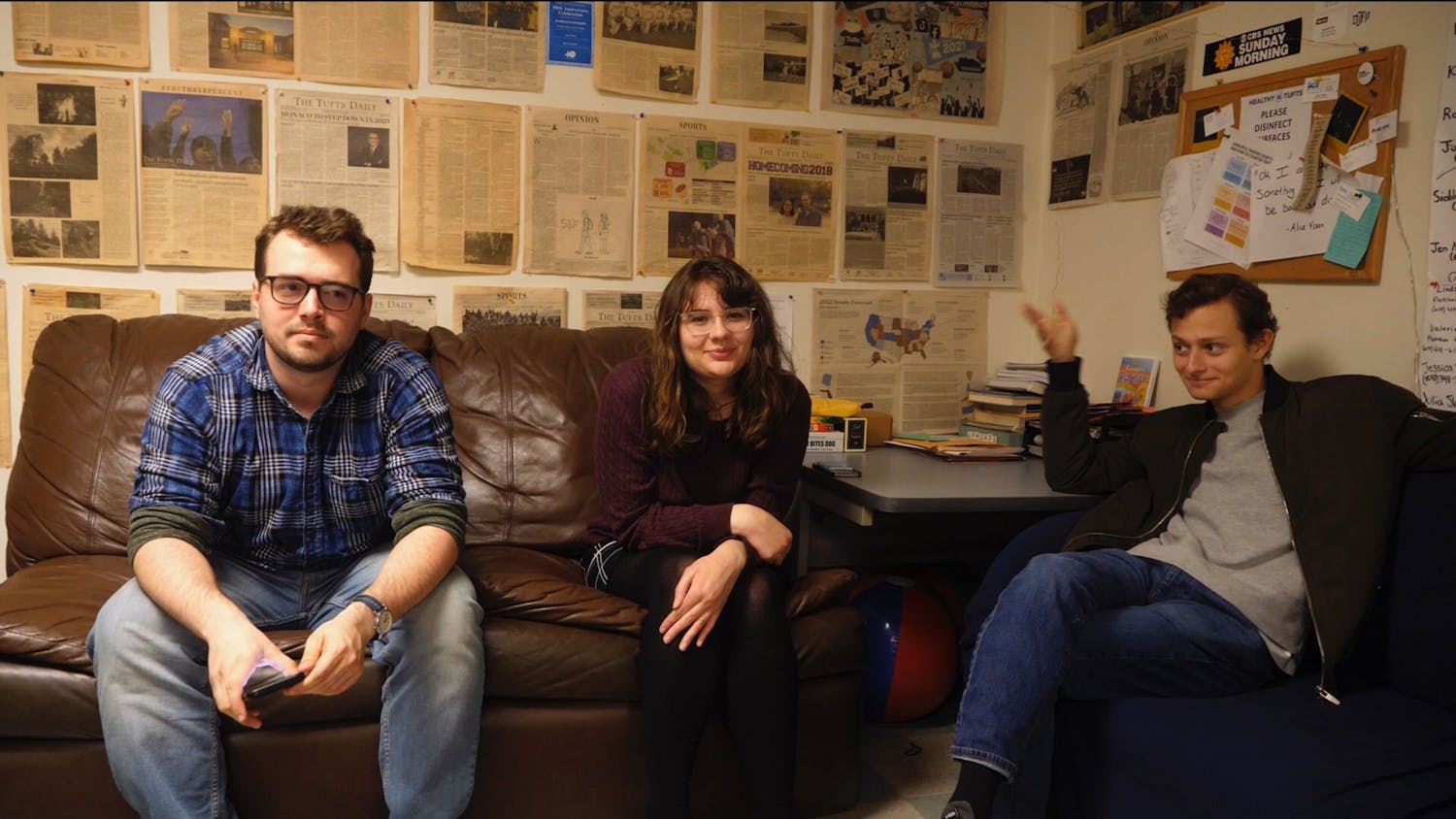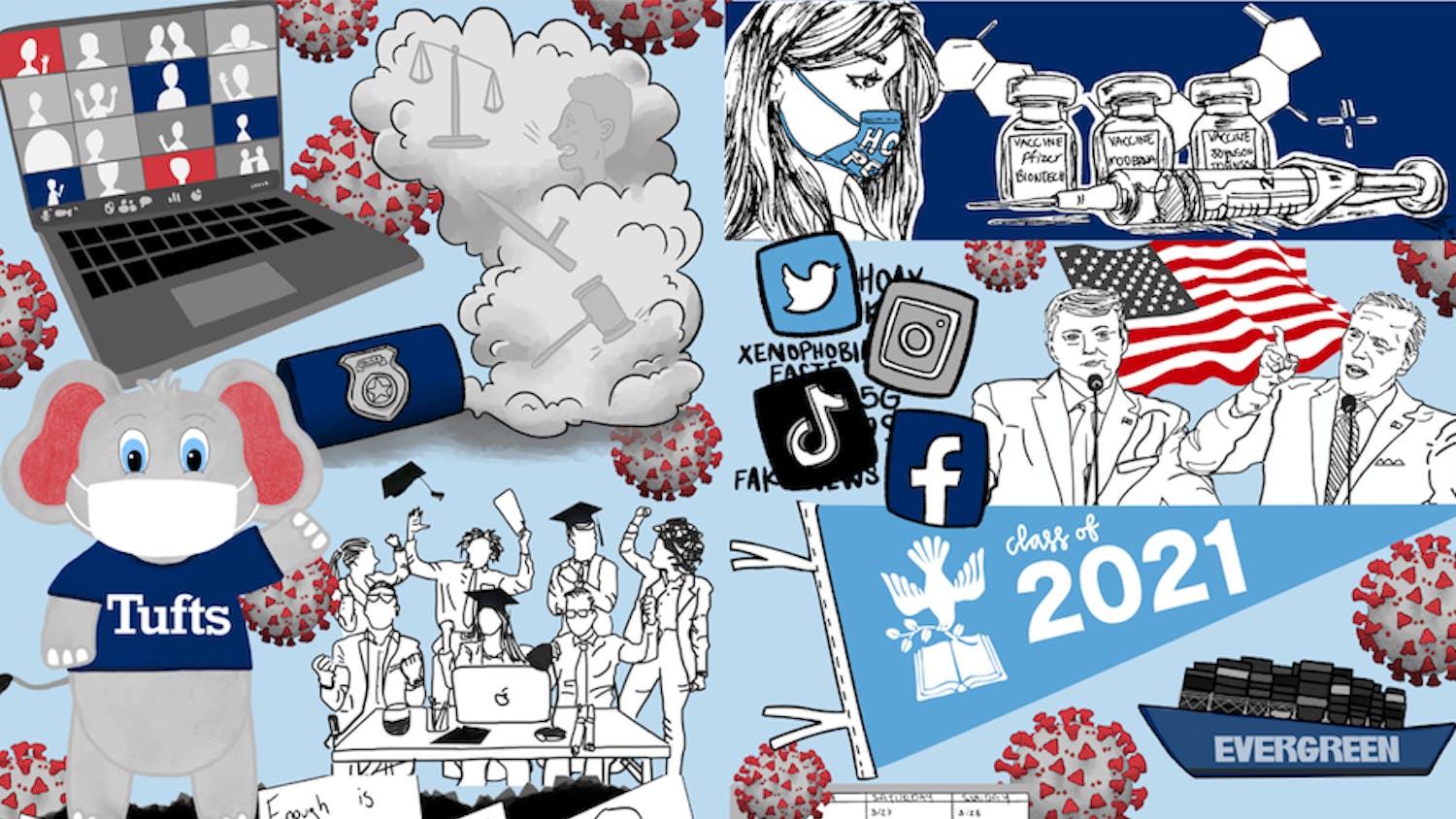When former Egyptian President Hosni Mubarak stepped down from power after 14 days of ongoing protest last month, Google's Middle East and North Africa Marketing Director Wael Ghonim, a leader in the Egyptian uprising, told CNN that the Egyptian protestors had the Internet to thank for their victory.
"I want to meet Mark Zuckerberg and thank him personally. I'm talking on behalf of Egypt. This revolution started online. This revolution started on Facebook," he said. Ghonim's statement soon appeared in the headlines of almost every major news outlet.
The speed, force and breadth of the recent revolutions in Tunisia, Egypt and parts of Libya, and the bubbling insurrections in other Arab nations, were more than almost any expert could have predicted just two months ago. The question of what brought these uprisings to life after years of harsh, institutionalized authoritarian rule has been a matter of intense debate.
The importance of social media to these revolutions has been a prevalent — but also highly contested — theory. How big a role technology played in these revolutions remains an open−ended question, said James Ennis, an associate professor of sociology at Tufts.
"It might be worth thinking about the difference between background conditions and channels of facilitation," he said. Nonetheless, he said, the Arab uprisings certainly have experienced "effects that are intrinsic to the technology."
Ennis explained that there is a wide spectrum of opinions regarding the Internet's centrality to social uprising. On one extreme are the Internet idealists, who claim that social media are a leading factor in many contemporary events; on the other are Internet pessimists like The New Yorker's Malcolm Gladwell, who believe that revolutions ignite from deeper social issues.
According to Ennis, Internet idealists are driven by the idea that these revolutions were brought on by a group of people that first encountered freedom through their access to the online world.
"When they experience that freedom and participation and inclusion online, and they don't have it in their everyday lives, that has explosive potential," he said.
Meanwhile, Ennis said, supporters of the opposing argument claim that technology plays a facilitating role rather a causal one, and that holding social media expressly responsible for revolution is an exaggeration.
Last October, months before the current unrest in the Middle East, Gladwell wrote a piece for The New Yorker titled "Small change: Why the revolution will not be tweeted." He followed up the piece in February with a blog post on the magazine's website.
"Please. People protested and brought down governments before Facebook was invented. They did it before the Internet came along," Gladwell wrote.
According to Ennis, from a sociological perspective, it is too early to tell how influential social media have really been, since there is no good empirical data yet.
"It might only be able to be determined retrospectively. What revolutions are is never clear until later. The meaning of things only unfolds over time because they are complicated and mixed," Ennis said.
Still, he said, there is evidence to support the conclusion that the Internet did play some sort of important role in these revolutions.
"It's pretty clear that the uprisings have been organized in part by people using new social media tools," he said.
The complicated nature of social revolutions must also be considered, Ennis said.
"Maybe you can argue that [these revolutions] couldn't have happened without the [social media] tools, but that doesn't necessarily mean that the tools themselves are the causes or critical facilitators," he said.
Ibrahim Warde, adjunct professor of international business at the Fletcher School, agreed that social media were certainly a significant factor in this specific case.
"I don't know if it was the only one, but it was certainly one of the important aspects of what happened," he said. "The significant part of it is that it was one tool where the young and the demonstrators were actually more proficient than the government."
Warde explained that in countries like Egypt, Libya and Tunisia, extreme authoritarian control often precludes civil society.
"Suddenly there were new communication tools that escaped the government that made a number of things possible that had not been possible before," he said. "The government was caught off balance because they were not used to these means of communication."
Warde believes that the importance of social media was most evident in Egypt and Tunisia's political struggles. But those countries' adoption of social media hardly occurred overnight, he said.
"Obviously it took some time for the system to be fully functional — to have enough people wired and who actually mastered the tools."
Warde said that the governments were not completely oblivious to the role of the Internet; they had been trying to control media, but young people managed to stay one step ahead.
"There was certainly a race to being able to use the tools in the part of the opposition movement and trying to control these in the part of the governments," he said.
Ennis explained that different tools are used at different stages of a mobilization.
"The Gladwell argument critiques the potential of new media to stimulate social change," he said. In light of this argument, Ennis continued, it could be said that the state or police had the potential of using new media just as well as the movement could.
According to Ennis, just as the revolutionaries called for meetings and attracted people to protest, the government's power to tap into social media to aid surveillance can make the Web as oppressive as they can be liberating.
"Think of Iran, where the regime was using social media to identify protestors, tag them, name them, arrest them," Ennis said.
When it comes to power in numbers, however, social media are on the activists' side.
"You can only [oppress] a certain number of people, and when the number gets too large or people lose fear of the regime, then people are willing to do whatever it takes," Ennis said.
Senior Tala Kayyali, co−president of the Arab Student Association at Tufts and a native of Jordan, said that, more than ever, websites like Facebook and YouTube are used in the Arab world as platforms for self−expression.
"These media certainly offer freedoms that may not be attainable in censored nations like most Arab countries," Kayyali said. "The fact that a multitude of people can communicate easily without much governmental supervision offers an opportunity that the people just had to take."
Social media had two main consequences for the recent revolutions, Warde explained.
"Domestically it allowed the groups to organize, and internationally it helped the outside world to learn what was going on and put pressure on the governments," he said.
For Kayyali, social media has definitely been a way to bring people together with regard to political issues.
Both Ennis and Warde agreed that the question of whether these Arab uprisings can be called definitively referred to as "social media revolutions" is hard to answer at present, with long−term results still uncertain.
"I don't know what history will end up calling these revolutions, but certainly social media will be one of the factors discussed in the future," Warde said.
More from The Tufts Daily
Tufts Daily Talks: 2024 Oscars predictions
By
Jake Ren and Tyler Frojmovich
| March 9
Cartoon: What type of Tufts potato are you?
By
Juju Zweifach
| February 25





